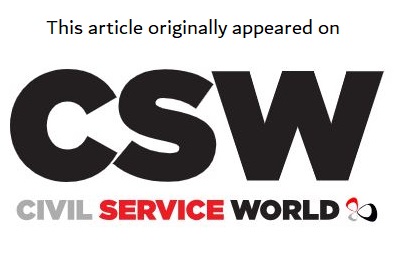Officials at the Office for National Statistics have until Easter to vote in PCS exercise as union claims move has ‘caused anger among staff demoralised by the lack of trust’
More than 1,000 civil servants at the Office for National Statistics are being balloted for strike action after management insisted that staff go into the office two days a week.
It comes after ministers directed senior officials across government to “set and implement an expectation of increased office-based working” among staff, with civil servants now expected to spend at least 60% of their time in the office subject to “estate capacity”.
The PCS union is asking 1,200 ONS officials based in Newport, Titchfield, London, Darlington, Manchester and Edinburgh to support strike action and action short of strike. The new hybrid working policy is more rigid than before the pandemic, as there was not previously an ONS-wide minimum requirement for officials to be physically in the office. Instead, managers would decide the on the business need and apply it locally, it is understood.
PCS said many ONS staff already come into the office several days a week, while others only accepted jobs at the non-ministerial department because they were promised the flexibility to work from home full-time.
PCS general secretary Fran Heathcote said: “Post-pandemic arrangements at ONS have been an example of best practice in flexible and sustainable ways of working, so it’s a mystery why managers have changed their minds, especially after having regularly reassured members they could remain working more flexibly. No evidence-based business case has been made for their rushed decision – a move that has caused anger among staff demoralised by the lack of trust and the need for rapid changes to their childcare and other arrangements.”
Some officials who are attached to offices but were previously told that did not have to go in are now being asked to come in, according to the union. Others were recruited with contracts stating they would work at home only, unattached to offices, PCS said.
Related content
- ONS chief cites need for departmental funding to support new £229m data platform
- Experts voice fears over loss of government data experts
- Digital Leaders’ Download: National statistician Ian Diamond on how data can provide ‘answers we could only have dreamed about 20 years ago’
In some cases, officials who have contracts which say they can work from home have been told they will lose this right if they change roles or get promoted, according to an ONS insider. Responding to this claim, an ONS spokesperson told PublicTechnology sister publication Civil Service World that, if this is in someone’s contract, the organisation would not force the 40% policy on them. They also said that staff are almost always attached to an office.
Until January 2024, there had been no requirement for staff to spend a specific amount of time in offices, following the move to home and hybrid working at the start of the Covid pandemic.
“There had been regular reassurances that these arrangements would remain in place and ONS staff followed this model in good faith and built their lives around it”, PCS said.
However, late in 2023, workers were told that, from January 2024, they would need to spend a minimum of 20% of their time in the workplace, increasing to 40% from April. The union said it had asked for the changes to be delayed until the end of the year to allow for officials to make childcare arrangements but this was refused.
PCS is calling for meaningful talks with ONS management before the strike ballot closes on April 2.
A spokesperson for the Office for National Statistics said: “The ONS has had a hybrid working model for some years now, in line with the wider civil service.”
They said under this policy, officials have always been required to attend the office according to business need, but with flexibility.
“Face-to-face interaction supports collaboration and fosters learning and innovation, while some tasks can be done as effectively or even more effectively at home,” the spokesperson added. “We are applying this flexibly to help balance business and personal needs, and have offered all colleagues extensive support.”





